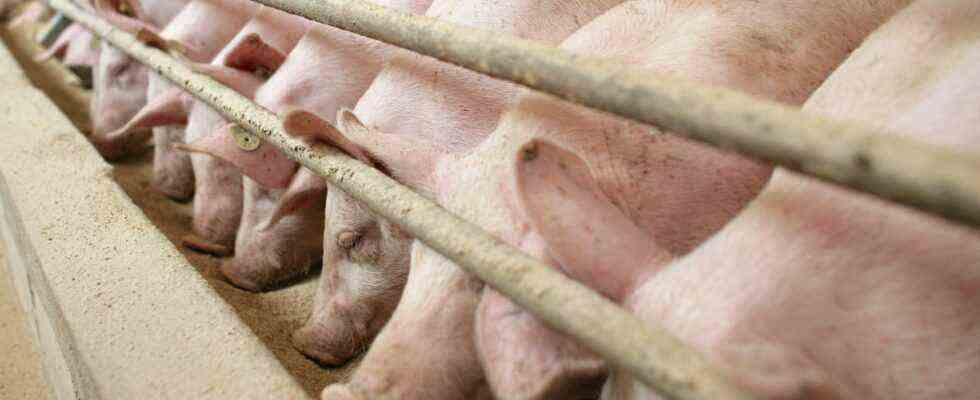More than 133,000 new corona infections within one day in Germany – this record not only worries politics and health care, but also more and more companies whose employees have tested positive or are in quarantine as contact persons. Above all, companies whose staff cannot work from home are now complaining about staff shortages. Currently, for example, the meat industry, which is already in the spotlight after large outbreaks at companies such as Tönnies or Westfleisch.
Comparatively strict rules now apply to the industry in North Rhine-Westphalia, where it is represented by several large companies. In factory locations with more than 100 employees, all employees must currently be tested at least once a week – including those who have been vaccinated, recovered and boosted.
This is not without effect: In the first two weeks of this year, the tests revealed “a high number of unreported cases of corona virus carriers”, reports the meat industry association (VDF), “but who have no symptoms of the disease”. In other words: In some factories, many employees who have tested positive are now absent, sometimes including contact persons. “As a result, these farms can only use 50 percent of their capacity,” says general manager Heike Harstick, “and accordingly accept fewer animals for slaughter.” Harstick fears that the number of positive tests could “increase sharply” since the risk of infection has increased in general.
Nevertheless, the meat industry is demanding that the country should let its comparatively strict test rules expire. “If there is no change in the legal situation in North Rhine-Westphalia, there is a risk of supply bottlenecks and animal welfare problems in farms,” warns Harstick.
There is still no pig traffic jam, according to the keepers
According to the agricultural association in Westphalia-Lippe (WLV), a region with a very large number of pig farmers, there has not yet been a so-called pig jam. But now only 60 to 70 percent of the capacity is slaughtered, says WLV President Hubertus Beringmeier – not without concern for the coming weeks. The North Rhine-Westphalian Ministry of Agriculture reports that the supply of fresh meat has not been “endangered” so far.
The Ministry of Labor and Health therefore wants to extend the test regulation “until further notice”, as it announced on request. “The motto ‘What I don’t know…’ cannot be a principle of fighting the pandemic,” said the house of CDU man Karl-Josef Laumann. It is not a solution to look the other way in order to be able to do without further measures. And any undetected infection could lead to even larger outbreaks.
The Ministry is also appealing to companies and municipalities to improve the vaccination status of the workforce in the meat industry. If more employees were freshly vaccinated, recovered or just given a boost, this would “avoid the quarantine obligations of contact persons right from the start”. In fact, many employees of large slaughterhouses live in shared apartments; this is how colleagues quickly become contacts.
If the employees are absent, the companies have to close temporarily
This week, however, the food industry issued an even clearer warning to the NRW government. According to this, individual slaughterhouses and cutting plants could temporarily close in the coming week because they were missing so many employees.
Laumann’s ministry is now opening up to another demand from the industry. If the situation worsens as feared, contact persons without symptoms could in individual cases be allowed to work despite quarantine. But that would only work in combination with “a hygiene concept that has been improved again,” according to the authority – and only to the extent that is urgently needed. In addition, affected employees would then have to be tested daily, live separately and also come to work separately. The ministry is “already in exchange” with the local health authorities.
So while the meat industry in the West is discussing special rules, the basic problem is also affecting other sectors of the economy. The Federal Association of Road Haulage, Logistics and Disposal reports that more and more truck drivers are missing as a result of the pandemic. The number of sick days this January was five to ten percentage points higher than was usual before the crisis. “The supply chains are still stable, empty shelves are not yet a threat,” says board spokesman Dirk Engelhardt. “But if the number of infections continues to go through the roof, they are at risk.”

